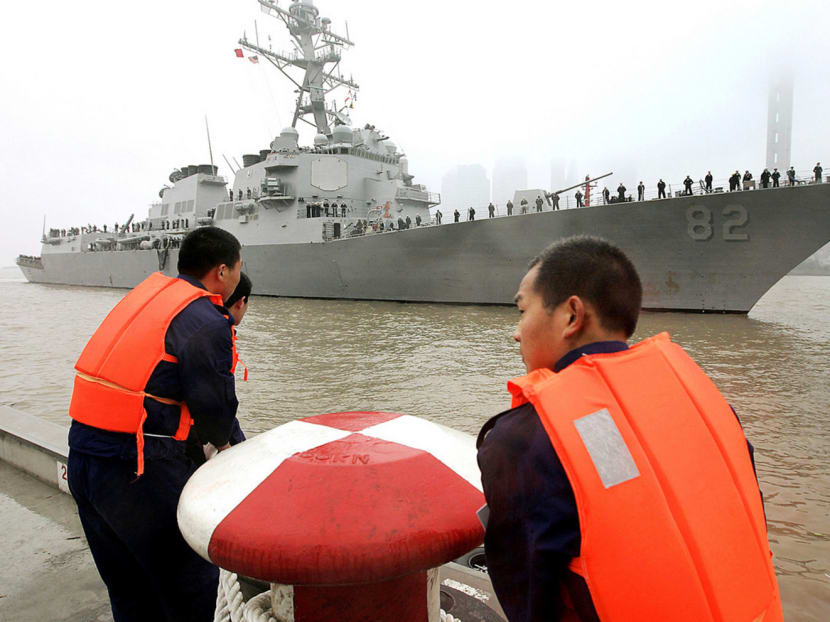China warns US: Minor incident may lead to confrontation
BEIJING/WASHINGTON — China’s naval commander told his United States counterpart that a minor incident could lead to confrontation in the South China Sea if the United States did not stop its “provocative acts” in the disputed waterway, the Chinese navy said yesterday.

Earlier this week, American destroyer USS Lassen (picture) sailed within about 19km of artificial islands
that China has built, drawing the ire of the Chinese government, which labelled it a provocative act. Photo: AP
BEIJING/WASHINGTON — China’s naval commander told his United States counterpart that a minor incident could lead to confrontation in the South China Sea if the United States did not stop its “provocative acts” in the disputed waterway, the Chinese navy said yesterday.
Admiral Wu Shengli made the comments to US chief of naval operations Admiral John Richardson during a video teleconference on Thursday, according to a Chinese naval statement.
“If the United States continues with these kinds of dangerous, provocative acts, there could well be a seriously pressing situation between frontline forces from both sides on the sea and in the air, or even a minor incident that sparks armed conflict,” the statement paraphrased Admiral Wu as saying.
“(I) hope the US side cherishes the good situation between the Chinese and US navies that has not come easily and avoids these kinds of incidents from happening again,” Admiral Wu said.
Earlier this week, American destroyer USS Lassen sailed within 12 nautical miles (about 19km) of small, artificial islands that China has built on Subi and Mischief Reef, drawing the ire of the Chinese government, which labelled the patrol a provocative act. The US refuses to recognise the manmade islets as deserving of sovereign territory status, and has insisted that it has the right to sail in international waters.
China claims most of the South China Sea, through which more than US$5 trillion (S$7 trillion) of world trade passes every year. Vietnam, Malaysia, Brunei, the Philippines and Taiwan have rival claims.
Speaking earlier, a US official said the naval chiefs agreed to maintain dialogue and follow protocols to avoid clashes.
Scheduled port visits by US and Chinese ships and planned visits to China by senior US Navy officers remained on track, the official said.
Both naval chiefs agreed on the need to stick to protocols established under the Code for Unplanned Encounters at Sea (CUES).
“They agreed that it’s very important that both sides continue to use the protocols under the CUES agreement when they’re operating close to keep the chances for misunderstanding and any kind of provocation from occurring,” the US official said.
Indeed, Admiral Wu said he believed the Chinese and US navies had plenty of scope for cooperation and should both “play a positive role in maintaining peace and stability in the South China Sea”.
A US Navy spokesman stressed Washington’s position that American freedom of navigation operations were meant to “protect the rights, freedoms, and lawful uses of the sea and airspace guaranteed to all nations under international law”.
Amid a climate of heightened tensions, Chinese Defence Minister Chang Wanquan and US Defence Secretary Ashton Carter are likely to cross paths next Tuesday in Kuala Lumpur, when they attend a meeting of 10 South-east Asian defence ministers and their counterparts from Australia, India, Japan and South Korea, among others.
Following that, Chinese President Xi Jinping will also visit Vietnam and Singapore next week. AGENCIES






